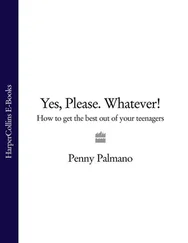Penny Vincenzi - The Best Of Times
Здесь есть возможность читать онлайн «Penny Vincenzi - The Best Of Times» весь текст электронной книги совершенно бесплатно (целиком полную версию без сокращений). В некоторых случаях можно слушать аудио, скачать через торрент в формате fb2 и присутствует краткое содержание. Жанр: Современная проза, на английском языке. Описание произведения, (предисловие) а так же отзывы посетителей доступны на портале библиотеки ЛибКат.
- Название:The Best Of Times
- Автор:
- Жанр:
- Год:неизвестен
- ISBN:нет данных
- Рейтинг книги:3 / 5. Голосов: 1
-
Избранное:Добавить в избранное
- Отзывы:
-
Ваша оценка:
- 60
- 1
- 2
- 3
- 4
- 5
The Best Of Times: краткое содержание, описание и аннотация
Предлагаем к чтению аннотацию, описание, краткое содержание или предисловие (зависит от того, что написал сам автор книги «The Best Of Times»). Если вы не нашли необходимую информацию о книге — напишите в комментариях, мы постараемся отыскать её.
The Best Of Times — читать онлайн бесплатно полную книгу (весь текст) целиком
Ниже представлен текст книги, разбитый по страницам. Система сохранения места последней прочитанной страницы, позволяет с удобством читать онлайн бесплатно книгу «The Best Of Times», без необходимости каждый раз заново искать на чём Вы остановились. Поставьте закладку, и сможете в любой момент перейти на страницу, на которой закончили чтение.
Интервал:
Закладка:
Patrick had asked to be settled for the night early. Sue Brown, the young nurse who was looking after him, brought him his hot drink and his drugs, and said if he wanted anything to ring for her.
“But hopefully you’ll have a lovely sleep, Patrick, and feel much better in the morning.”
When she had gone, he made his preparations very carefully. He felt calm, not frightened at all. He wrote a letter to Maeve, telling her how much he loved her and how this way would be much better for both her and the boys. He thanked her for being a wonderful wife and told her that the boys had the best mother in the whole wide world. He signed it, “All my love, my darling Maeve, Patrick.”
He wrote a separate letter to the boys, telling them how much he loved them and how sorry he was to have sent them away that day. “Be good for your mummy; Liam, you will be the man in the family now, so you must look after her. And remember me always as I used to be, not as I am now. Your very loving Daddy.”
Then he wrote another note for “whom it may concern,” asking not to be resuscitated if there was any question of it.
And then he wrote a note to Alex Pritchard, thanking him for all his kindness both to him and to Maeve, and telling him how much he had helped both of them in the first awful, early days. “All doctors should be like you, Dr. Pritchard,” he finished, signing it off, “yours with gratitude, Patrick Connell.”
He propped all the letters up on his bedside unit, and then he lay back on his pillows to rest.
The sun was setting by then; he could see the sky from his window. It was ravishing, a stormy red streaked with black, with great slanting shafts of light pushing through the clouds: a child’s-Bible sky. He lay there quietly, watching it blaze and fade, and then he reached into his bedside cupboard for his rosary and said his prayers. He asked God for his forgiveness for what he was about to do, committing a mortal sin, and he asked Him, too, to forgive him for the dreadful carnage he had wrought on the motorway. He felt that if God was a good and loving God, He would understand his anguish and find it in His heart to forgive him.
He asked Him to comfort and care for Maeve and the boys, and then he recited the twenty-third psalm. He would indeed be walking through the valley of the shadow of death; he would need God’s rod and staff to comfort him. He prayed again that he would not be denied it. And then finally he said a Hail Mary and the Lord’s Prayer and made the sign of the cross.
As he did so he discovered that he was weeping, and discovered, too, that he was not really surprised. The life that had seemed so promising, so happy, so filled with delight and family pleasure and a wife he loved and who loved him, was gone forever, destroyed by his own carelessness and arrogance. He would not see that life again; it was lost to him, and he did not deserve it. He had caused immense misery to many, many people; he had robbed a child of his mother, a mother of her child. He had read the papers, read the interviews, in spite of the efforts of the hospital staff to keep them from him. He had read about the sense of utter loss and desolation and anger felt by the people whose lives he had destroyed; it seemed absolutely wrong, a reversal of the proper order of things, that he should be still alive. He would die, and it would be a reparation of sorts, would perhaps show some of those poor, unhappy people how sorry he was for what he had done to them. He hoped someone would tell them.
And then he sat for a while longer, his head bowed, holding his rosary, reflecting on what he was about to do, and preparing himself for the moment when it became reality.
CHAPTER 29
He knew he’d never be able to forgive himself. Never. It was so true what they said: Everyone made mistakes, but doctors buried theirs.
He could never remember feeling so remorseful. How could it have happened? How could a man, a desperately ill man, confined to his hospital bed and, moreover, under intensive medical scrutiny, have managed to store up enough drugs to kill himself? And, more important, how could he, Alex Pritchard, have failed so totally to recognise the depths of that man’s despair? He felt shocked at the failure of the hospital and its systems and, perhaps worst of all, ashamed of himself, that he could have been so bloody obsessed with his own problems that he hadn’t noticed what was going on under his own nose.
He’d met Maeve in reception at three a.m.; she was white and wild eyed.
“Hello, Maeve.”
“Dr. Pritchard! It’s good to see you. How is he?”
“He’s… he’s doing OK, we think. There was concern about his kidney, his one remaining one, you know, but it seems to be coping, with the help of the drugs. He’s not completely out of the woods yet, but we’re hopeful.”
“Oh… Dr. Pritchard, thank you. Thank you so much.”
“No thanks due to me,” he said, and meant it.
Nurse Sue Brown, checking on her patients just after ten, had found them all peacefully asleep. Even poor Patrick Connell.
The other nurse was not at the desk; Sue had settled down to do the reports-and then remembered she’d been instructed by the sister to give Mr. Connell an extra sleeping pill that night. Which she had, of course; she’d counted them out very carefully, and had then fetched him some extra water, as he’d asked, and when she got back, he’d taken them all. But she wasn’t sure what that brought his total dosage to. She’d need his notes to do that, and they were in his room. Just for a moment she was tempted to leave it and fill it in in the morning. But no, it was too important.
She opened the door very cautiously. Thunderous snores greeted her. He seemed very firmly asleep. Good . She fished the notes out of the pocket at the bottom of his bed, and was just leaving the room again when she realised he was lying rather oddly, slumped onto his right side. She moved over to the bed, to see if she could ease him into a more comfortable position without disturbing him too much, and saw the neat pile of notes on his bedside unit.
The top one was addressed to “my boys.” That was good. He’d sent them away today, she’d heard; he was probably telling them how sorry he was and how much he’d like to see them soon. As she leaned over him, starting to ease his pillows into a more supportive position, she knocked the pile of letters onto the floor. She bent down to pick them up and saw that there was one addressed to Dr. Pritchard. That was… well, it was odd. Why write to one of the doctors? And then she saw another-“To whom it may concern”-and her heart began to beat uncomfortably hard.
She looked at Patrick again, and then reached out for his hand to take his pulse. It was cold, and the pulse was very slow. Very slow indeed…
Sue Brown half ran from the room and set off the alarm. It was the early hours before it could be pronounced with any certainty that Patrick was going, probably, to be all right.
Alex, in ICU, had realised for the first time perhaps how wretched and impotent it felt to be on the sidelines there. But at least he was able to comfort Maeve; he had sat with her in the relatives’ room, fetching her tea, which she didn’t drink, talking in platitudes, even holding her hand while she wept and berated herself for not being more understanding and sensitive to Patrick’s depression.
“How could I have got cross with him, Dr. Pritchard?” she said, wiping her eyes, “yesterday and on Friday, telling him to pull himself together, not to be so selfish. How could I have done that?”
“You’ve been under a dreadful strain, Maeve,” he said, “and been so brave and loyal. How many people would have done that awful journey every day, uncomplaining?”
Читать дальшеИнтервал:
Закладка:
Похожие книги на «The Best Of Times»
Представляем Вашему вниманию похожие книги на «The Best Of Times» списком для выбора. Мы отобрали схожую по названию и смыслу литературу в надежде предоставить читателям больше вариантов отыскать новые, интересные, ещё непрочитанные произведения.
Обсуждение, отзывы о книге «The Best Of Times» и просто собственные мнения читателей. Оставьте ваши комментарии, напишите, что Вы думаете о произведении, его смысле или главных героях. Укажите что конкретно понравилось, а что нет, и почему Вы так считаете.












